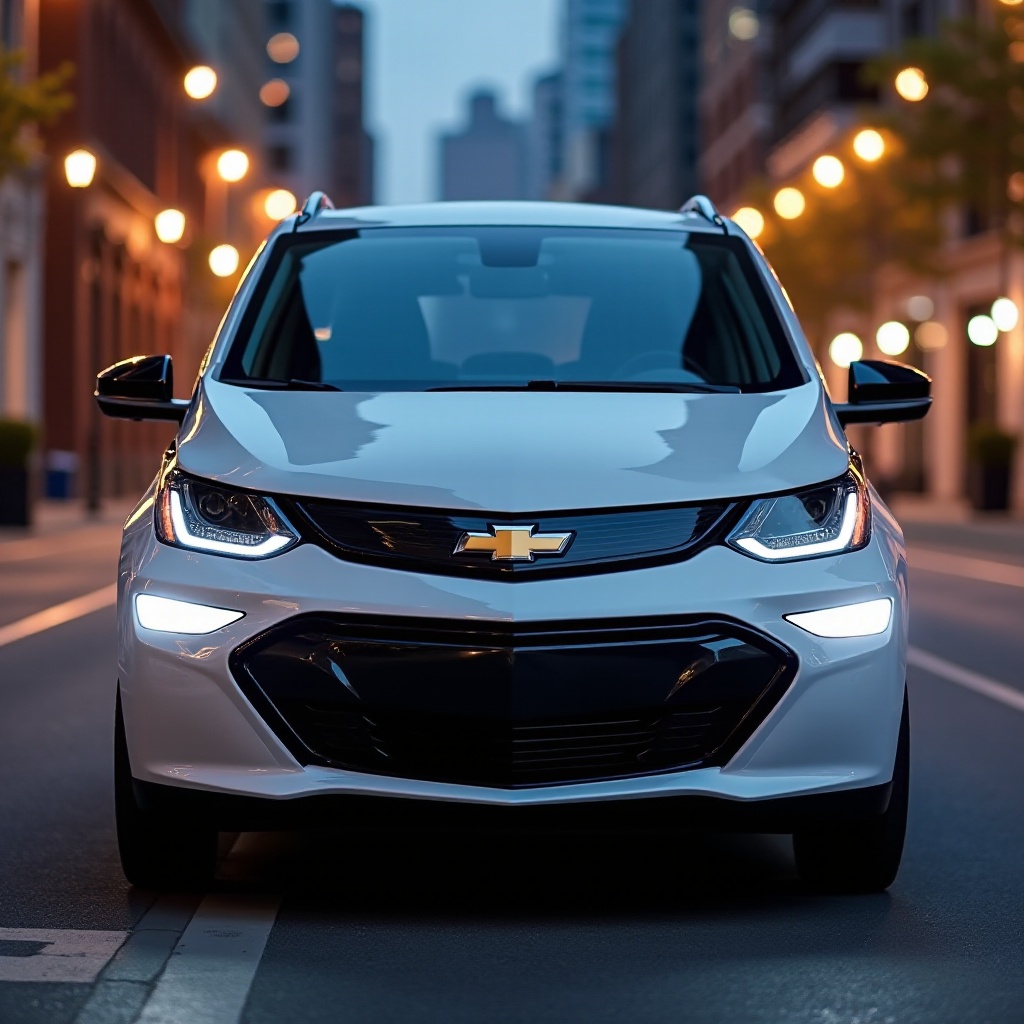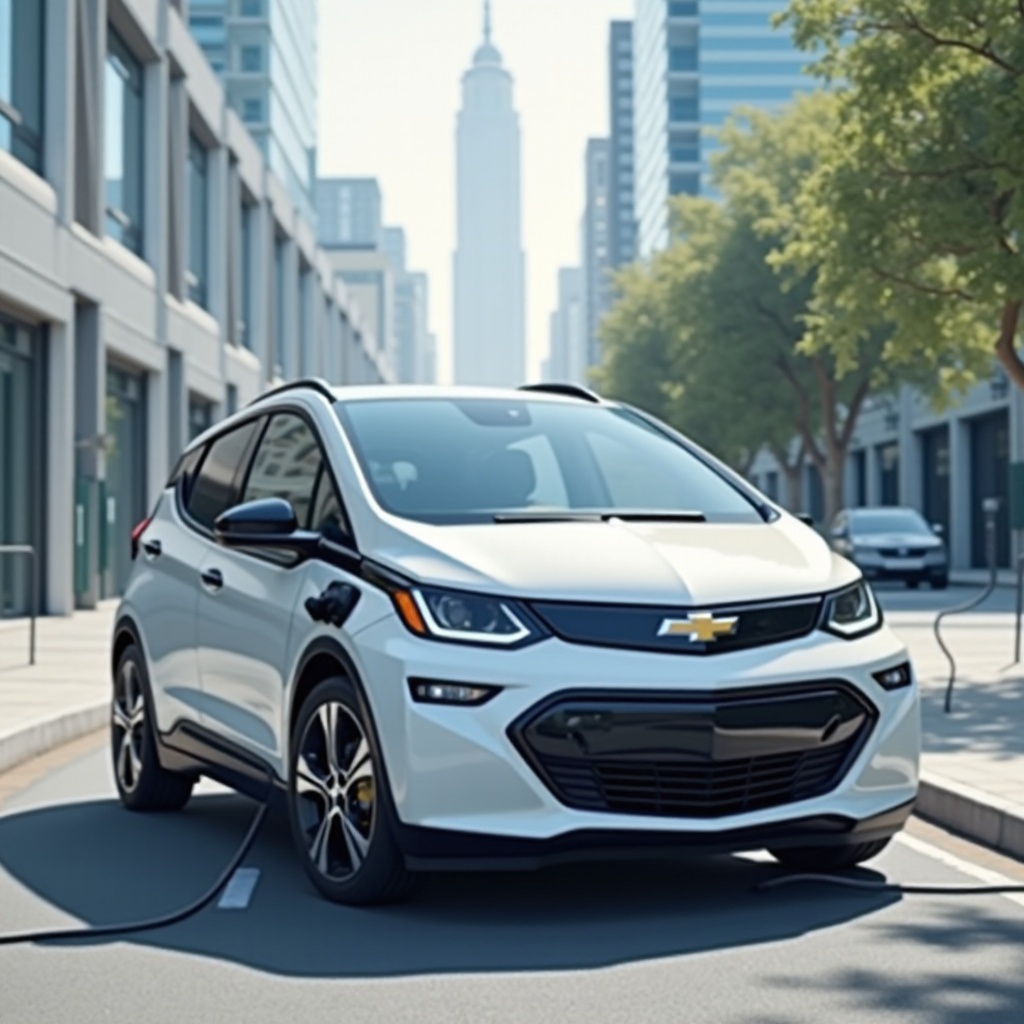Introduction
The Chevy Bolt EUV (Electric Utility Vehicle) represents a significant advancement in the realm of electric vehicles (EVs). This EV offers not only the convenience of gasoline-free driving but also the impressive features of modern technology. Central to this is its battery capacity, which enables extended travel ranges and greater reliability. This crucial component defines the vehicle’s performance and efficiency. Understanding the battery capacity of the Chevy Bolt EUV can help current and prospective owners appreciate the nuances of what this EV has to offer. This blog explores the Chevy Bolt EUV’s battery in depth and draws comparisons with its market rivals.

Overview of the Chevy Bolt EUV
The Chevy Bolt EUV is General Motors’ proud entrant into the expanding market of electric vehicles. Offering a sleek design combined with spacious interiors, this model is engineered to meet the demands of modern drivers looking for eco-friendly alternatives. Equipped with advanced technologies such as Super Cruise, which provides hands-free driving assistance, the Bolt EUV stands out as a versatile and reliable option for city and highway driving. Crucial to its appeal is its battery system, providing ample power and efficiency. This battery significantly influences its driving range, charging time, and overall performance, making it an imperative focal point for anyone considering this EV.
Detailed Breakdown of the Chevy Bolt EUV Battery
The battery is the heart of any electric vehicle, and for the Chevy Bolt EUV, that heart is quite robust. The Bolt EUV comes with a 65 kWh lithium-ion battery pack, which is engineered to offer a blend of longevity and performance. Lithium-ion technology is prized for its efficiency, high energy density, and relatively low self-discharge rate, which are pivotal for users who seek both reliability and long-term savings.
Construction and Capacity:
- The 65 kWh battery comprises modules of cells arranged to optimize space and weight distribution across the vehicle, ensuring not just performance but also the safety of the vehicle.
- The battery pack is typically shielded and thermally managed to prevent overheating, which can be a concern in electric vehicles.
Performance Aspects:
- The battery capacity translates to a driving range of approximately 247 miles on a full charge, according to EPA estimates. This range allows most drivers to cover daily travel and even longer trips without frequent recharging.
- With regenerative braking, energy is recuperated during deceleration, enhancing the battery’s efficiency and contributing to a longer range.
Charging:
- The Bolt EUV supports various charging options, including standard Level 1 (120 volts) and more efficient Level 2 (240 volts) home charging equipment, as well as DC fast charging capabilities.
- Fast charging allows the battery to reach an 80% charge in about 30 minutes, significantly reducing downtime compared to traditional charging methods.

Performance Metrics: What Battery Capacity Means for Drivers
A vehicle’s battery capacity directly impacts its performance, particularly in terms of range, charging time, and energy efficiency. Here’s what drivers can expect from the Chevy Bolt EUV:
Extended Driving Range:
- The 65 kWh battery provides a substantial range of up to 247 miles on a single charge, ensuring that daily commutes and longer trips can be completed with minimal interruptions.
- Factors such as driving style, terrain, and weather conditions can affect this range, but overall, the Bolt EUV boasts a competitive range for its class.
Charging Efficiency:
- The Bolt EUV’s ability to support DC fast charging means less time spent at charging stations. This is particularly beneficial for long-distance travelers, enabling them to quickly recharge and get back on the road.
- Home charging provides the convenience of waking up to a fully charged vehicle each morning, with Level 2 equipment offering the most efficient overnight charging solution.
Environmental Impact:
- A higher battery capacity translates to fewer charging cycles over the lifespan of the vehicle, which can contribute to the longevity of the battery and reduce the need for frequent replacements.
- The use of regenerative braking in the Bolt EUV enhances energy efficiency, capturing and storing energy that would otherwise be lost, thus extending the vehicle’s range.
Comparison with Competitors
When comparing the Chevy Bolt EUV to its counterparts in the EV market, battery capacity is a crucial determinant.
Tesla Model Y:
- The Model Y offers a range of over 300 miles, surpassing the Bolt EUV. However, it comes at a higher price point, which can be a significant consideration for budget-conscious buyers.
Nissan Leaf:
- The Nissan Leaf provides multiple battery options, the largest being 62 kWh, giving it a driving range of up to 226 miles. While slightly less than the Bolt EUV, the Leaf remains a strong competitor in terms of affordability and features.
Ford Mustang Mach-E:
- With an extended range battery option, the Mach-E can achieve over 300 miles on a full charge. It offers impressive performance but, again, is positioned at a higher price bracket compared to the Bolt EUV.
The Chevy Bolt EUV presents an attractive balance between cost, range, and features, making it a formidable contender in the EV market.
Future Prospects and Advancements in Battery Technology
Looking ahead, advancements in battery technology promise to further revolutionize the EV market.
Solid-State Batteries:
- Future iterations of the Chevy Bolt EUV may include solid-state batteries, which are expected to offer higher energy densities, faster charging times, and enhanced safety features compared to current lithium-ion technology.
Increased Efficiency:
- Improvements in battery chemistry could lead to more efficient energy storage and management, extending the driving range even further and reducing the environmental impact of battery production and disposal.
Integration with Renewable Energy:
- With the growing emphasis on renewable energy sources, future models could better integrate with solar and wind power systems, providing sustainable charging options and further reducing carbon footprints.

Conclusion
The Chevy Bolt EUV’s battery capacity is a key feature that sets it apart in the electric vehicle market. With a robust 65 kWh battery, drivers can enjoy an impressive range, efficient charging options, and the benefits of regenerative braking. The comparison with competitors highlights the Bolt EUV’s balance between cost and performance, making it a compelling choice for many. As battery technology continues to evolve, the future looks bright for the Bolt EUV and the broader landscape of electric vehicles.
Frequently Asked Questions
What is the battery capacity of the Chevy Bolt EUV?
The Chevy Bolt EUV features a 65 kWh lithium-ion battery.
How does the Chevy Bolt EUV’s battery capacity compare to other EVs?
It offers a competitive range of 247 miles, balancing cost and performance effectively.
What advancements in battery technology can we expect in future Chevy Bolt EUV models?
Future models may see solid-state batteries, improved efficiency, and better integration with renewable energy sources.
